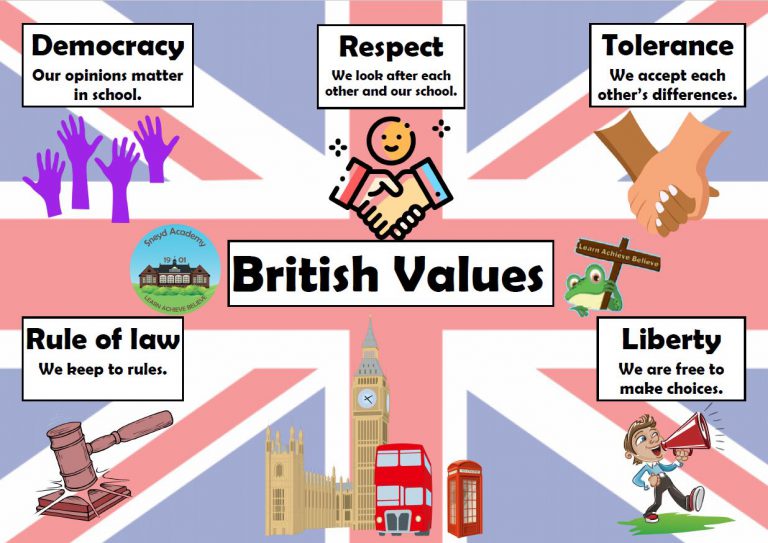British Values
Safeguarding Policy
Norden Community Primary is committed to safeguarding and promoting the welfare of young people. We expect all staff, visitors and volunteers to share this commitment. For more information, please see our Safeguarding Policy. (Safeguarding Policy would be a direct link to the document)
Yes, I accept the Safeguarding Policy.
View Policy
Accept
At Norden Community Primary, we promote the British Values of Democracy, Respect, Rule of Law, Tolerance and Individual Liberty. These values are taught across all our curriculum areas and in everything we do: in assemblies, celebrations, special awareness days and trips.

British Values
Promoting Fundamental British Values at Norden Community Primary School
In accordance with The Department for Education, we aim to actively promote British values in our school to ensure young people leave school prepared for life in modern Britain. Pupils are encouraged to regard people of all faiths, races and cultures with respect and tolerance and understand that while different people may hold different views about what is ‘right’ and ‘wrong’, all people living in England are subject to its law.
The Key British Values are:
- democracy
- rule of law
- individual liberty
- mutual respect
- tolerance of those of different faiths and beliefs
We actively promote British values through
Focusing on and showing how the school’s work is effective in securing these values throughout the curriculum.
Challenging pupils, staff, visitors or parents who express opinions contrary to British values.
Democracy – what do we do?
- Class voting for the election of school councillors at the start of the year;
- Provide pupils with a broad general knowledge of, and promote respect for, public services;
- Teach pupils how they can influence decision-making through the democratic process, especially through our school council;
- Taught through assemblies, our school curriculum and day to day practise;
- Encourage pupils to become involved in decision-making processes and ensure they are listened to in school;
- Help pupils to express their views;
- Model how perceived injustice can be peacefully challenged;
- School council regularly involved in meetings to help decision making
Rule of law – what do we do?
- Ensure school rules and expectations are clear and fair;
- Class rules and celebration of adhering to these rules;
- Help pupils to distinguish right from wrong;
- Help pupils to respect the law and the basis on which it is made;
- Help pupils to understand that living under the rule of law protects individuals;
- Explore within our PSHE lessons, laws and what to do if peer pressure is trying to persuade children to break these;
- Regular visits from our local PCSO
Individual liberty – what do we do?
- Support pupils to develop their knowledge, self-esteem, self-confidence;
- Encourage pupils to take responsibility for their behaviour, as well as knowing their rights;
- Model freedom of speech through pupil participation, while ensuring protection of vulnerable pupils and promoting critical analysis of evidence
- Challenge stereotypes;
- Implement a strong anti-bullying culture;
- E-Safety units of work are taught throughout school and parents and staff receive information on these.
Mutual Respect and tolerance of different cultures and religions– what do we do?
- Explore critical news events (e.g. terrorist attacks, Black Lives Matter etc);
- Taught through our RE and PSHE curriculum
- Explore positive role models (where possible) through our topics who reflect the protected characteristics of the 2010 Equality Act;
- Challenge prejudicial or discriminatory behaviour;
- Organise visits to places of worship;
- A recognition of a variety of religious festivals such as Diwali, Eid and Christmas;
- Our RE scheme ensures that our children have a good understanding of a range of religious beliefs and customs;
- Help pupils to acquire an understanding of, and respect for, their own and other cultures and ways of life;
